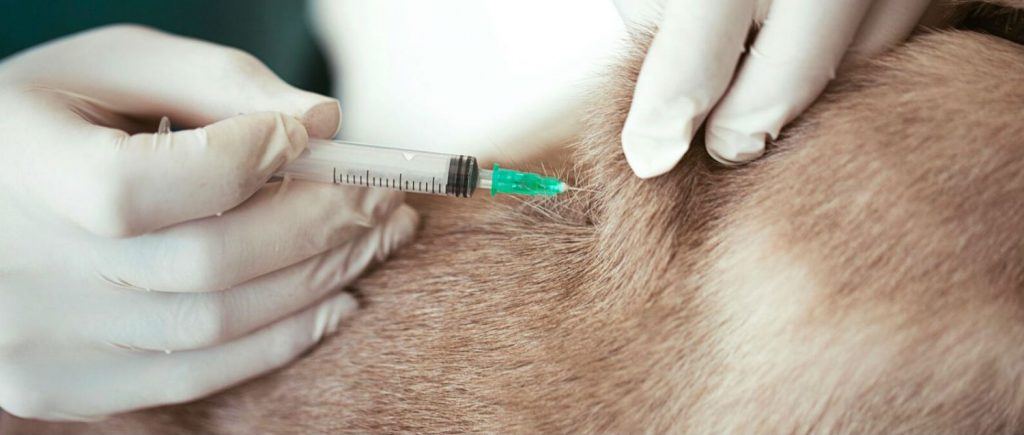Hi there,
Sorry to hear that this occurred.
I’m the kind of veterinarian that likes to avoid vaccination if I can. You’ll see from our resources that I recommend giving a vaccine if your pet is at risk of exposure to the disease or if it is a core vaccine that works to protect a population of pets. So when I tell you that I believe that vaccination is a critical tool for preventing and controlling disease in an individual and population, I am not just a veterinarian supporting business for vets. So my first response to your question is that I would not just rule out the use of vaccines because of a reaction that may or may not have been related to them.
So here’s a few thoughts…
Most vaccine reactions occur within 24 hours of receiving the vaccine. Some of these are expected and similar to what we experience which is lethargy, inappetence, vomiting, diarrhea, and soreness (but unlikely since vaccines are not given in the muscle in most cases). These reactions are possible but not common other than the lethargy. More serious reactions are ones where there is facial swelling, skin swelling, general itchiness, and all the way to extremes reactions that can be fatal which is something I’ve never seen in 14 years of doing this. Sometimes I think a cat can experience lethargy, inappetence, vomiting and diarrhea just from the stress of the car ride to the vet and the visit itself.
To have a reaction 9 days later, is possible but highly unlikely. It is a safer assumption that your cat just got ill sometime later. There still may be a link but possibly not a direct link. Your cat may have gotten an infection which was made more likely from the stress of the visit and vaccination. Either way, we’ll probably never know.
I would have a good conversation with your veterinarian about the value of vaccination in your cat based on its lifestyle. For example, if your cat goes outdoors, it is at high risk of getting Feline Leukemia which would be devastating to contract and benefit of vaccination far outweighs the risk of a vaccine reaction. If you don’t want to give a rabies vaccine, you will likely be at risk of having your cat quarantined if it bit anyone and you can’t show rabies vaccination. This isn’t meant to scare you into using vaccines. It’s meant to give you an example of exactly what type of conversation you need to have with your vet. And going forward, you can mitigate the possibility of a vaccine reaction. Ask your vet about giving a single vaccine at a time instead of a combination, and about the use of antihistamines prior to receiving the injection.
If you would like to further educate yourself about antihistamine medication and vaccination, I encourage you to take a look at our videos, “What You Should Know About Over-the-Counter Antihistamine Use in Dogs & Cats”, “Everything You Need to Know About Vaccine Reactions“, “Which Vaccines Should I Give My Dog or Cat?“ and “How Often Vaccines Need Boosters & The Benefits of Titre Testing for Dogs & Cats“.
Hopefully this helps.
Dr. Clayton Greenway
